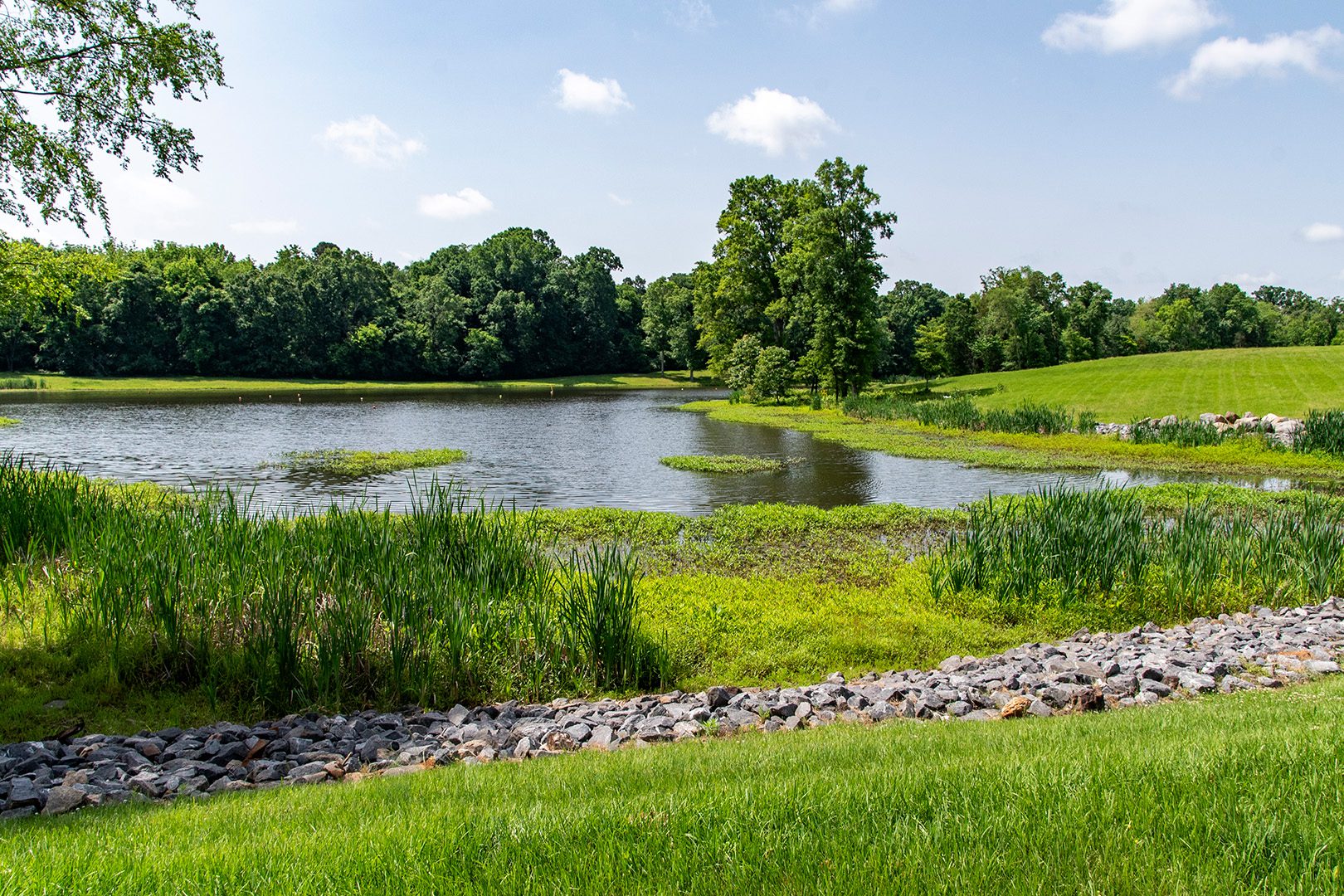As a professional commercial association management firm, we understand the unique challenges that come with maintaining commercial properties—from owner satisfaction and landscaping to long-term capital improvements. But one often overlooked responsibility with enormous legal, financial and environmental impact is the proper maintenance of Stormwater Control Measures (SCMs)—especially stormwater ponds.
At first glance, these features might look like scenic amenities or incidental drainage ditches. In reality, they are engineered systems essential to your property’s compliance, safety and sustainability. Failing to manage them properly can result in significant penalties, costly repairs and even reputational damage. Here’s what you need to know.
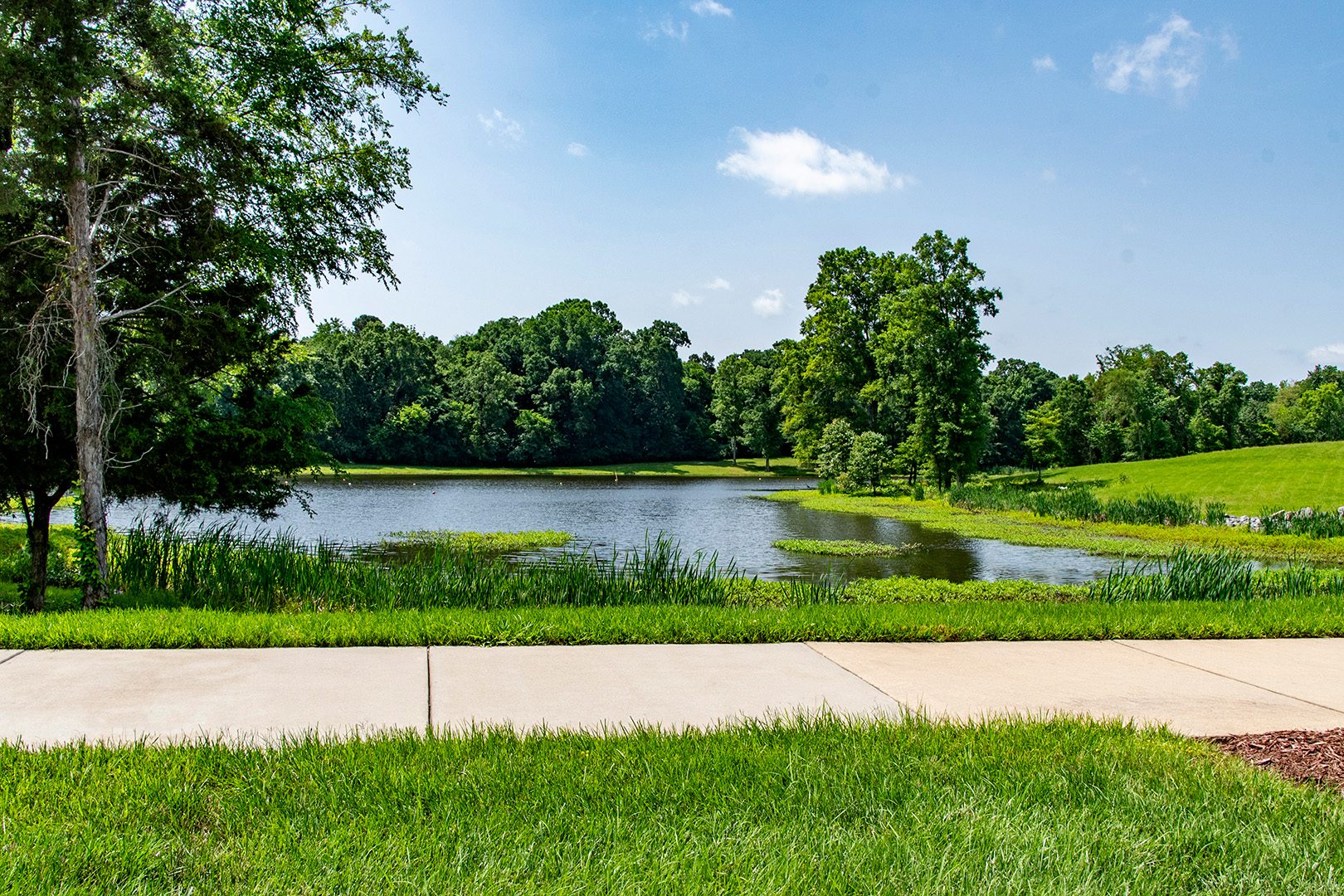
What Are SCMs?
Stormwater Control Measures (SCMs)—formerly known as Best Management Practices (BMPs)—are structures and strategies designed to manage runoff from rainstorms. Their primary purpose is to collect, treat and safely discharge stormwater that accumulates from impervious surfaces like parking lots, rooftops, sidewalks, and roads.
These measures come in various forms, including:
- Wet and dry detention ponds
- Bioretention cells (rain gardens)
- Sand filters
- Underground detention systems
- Swales and infiltration trenches
- Constructed wetlands
For most commercial properties, especially shopping centers, office parks and industrial campuses, stormwater detention ponds are the most visible and common SCMs. These are not decorative lakes—they’re regulated infrastructure that must be inspected and maintained like any other engineered system.
Why Are SCMs Important?
Regulatory Compliance
First and foremost, SCMs are not optional. Most municipalities and counties across the U.S. require the installation and ongoing maintenance of SCMs as a condition of property development approval. Many jurisdictions mandate annual inspections by certified professionals, and those reports are often due to local stormwater services departments.
Non-compliance can result in:
- Notices of Violation (NOVs)
- Fines or penalties
- Forced repairs at your expense
- Legal action or liens on the property
As association managers, we serve as the frontline liaison between commercial property owners and municipal stormwater regulators. It’s our job to ensure our clients never miss an inspection, report, or required maintenance action.
Environmental Protection
SCMs help protect local waterways from pollution, erosion and sedimentation. Without these systems, rainwater would rush over pavement and carry oil, debris, fertilizers and trash directly into rivers, streams and lakes.
Properly functioning SCMs:
- Filter out harmful pollutants
- Reduce flood risk by detaining runoff
- Protect aquatic habitats downstream
- Recharge groundwater
This is not just about being good environmental stewards—it’s about minimizing liability. If stormwater from your property damages neighboring areas or contributes to erosion or pollution, you, the property owner, could be held responsible.
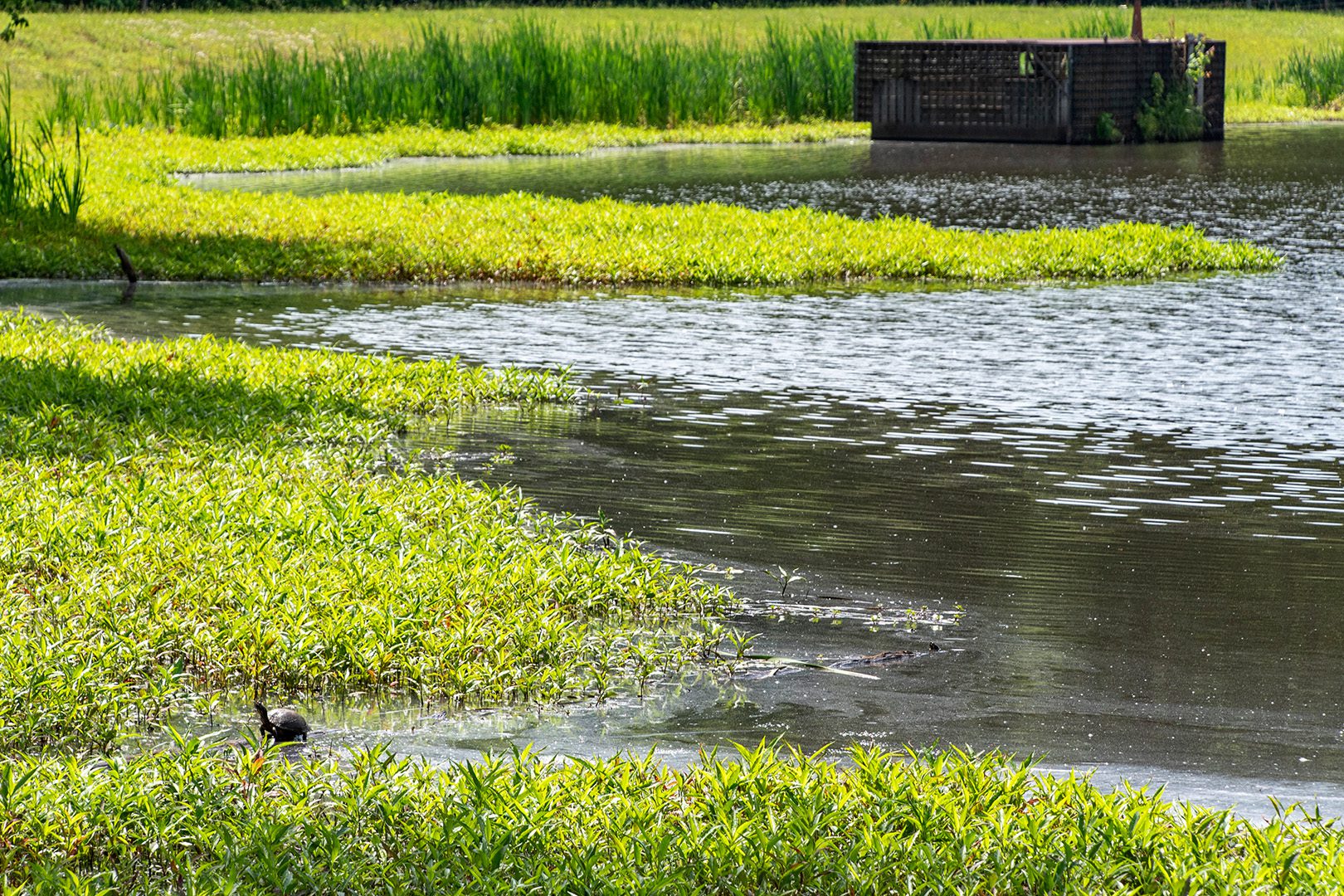
Asset Protection
When stormwater systems fail, the results are not pretty. Eroded banks, sinkholes, clogged outflows, mosquito breeding and unsightly algae blooms are all signs of poorly maintained SCMs. These conditions can damage landscaping, reduce property value and create hazards for tenants and visitors.
Routine maintenance avoids these issues and protects your investment. A well-maintained stormwater pond is not only more attractive, but also less expensive to repair long-term.
The Hidden Costs of Neglecting SCMs
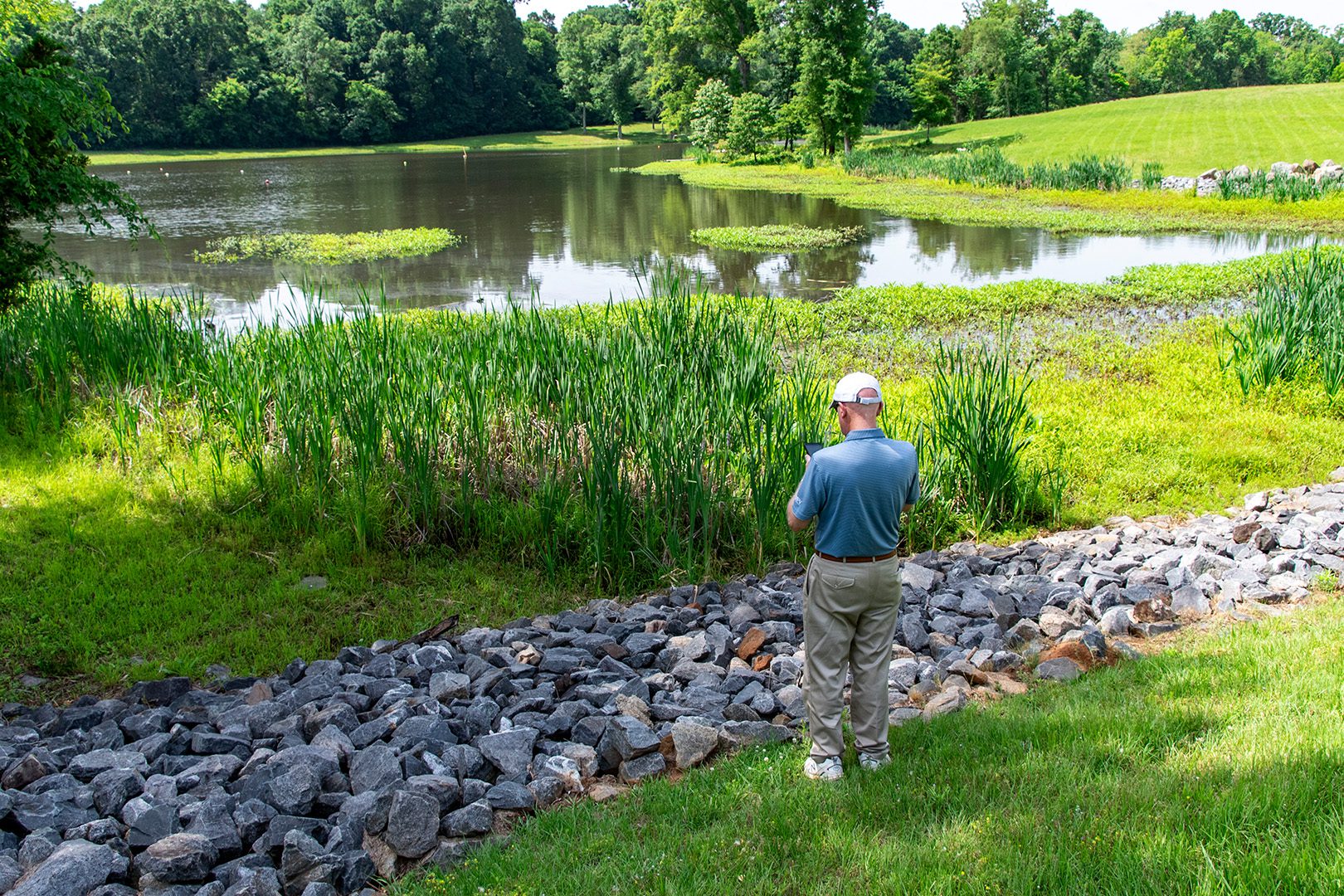
MPV Properties’ Commercial Association Management team often gets called in to help associations or property owners who have not maintained their SCMs for several years—either because of turnover, lack of awareness, or assuming that a landscaper or grounds crew was “taking care of it.”
Unfortunately, stormwater systems are not self-sustaining. Without proactive management, you can expect:
- Sediment buildup, which reduces capacity and leads to flooding
- Clogged outfall structures, causing water backup
- Erosion of embankments, requiring costly restoration
- Invasive plant species, which outcompete beneficial vegetation
- Fines from missed inspection reports or non-compliance
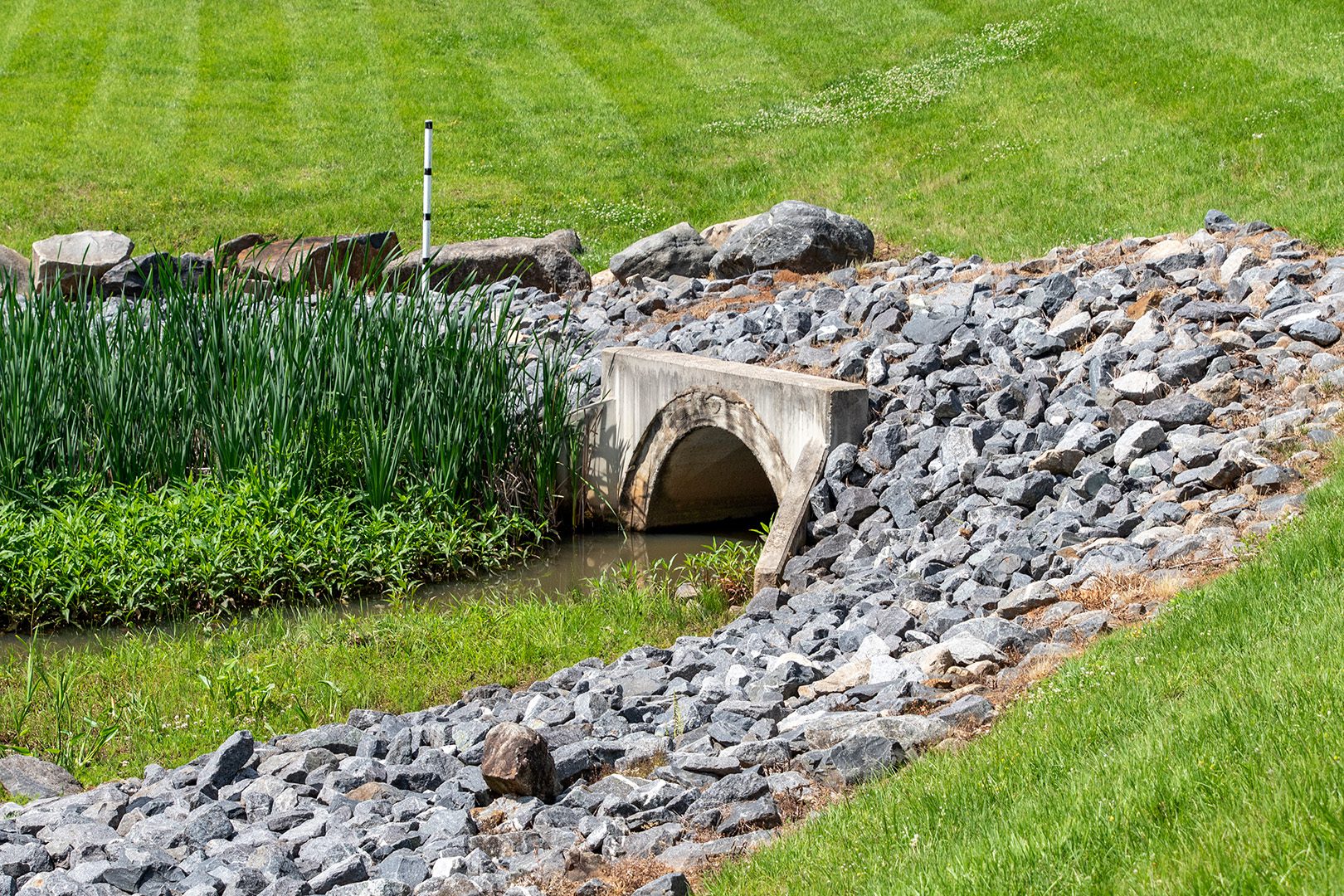
Remediation itself can cost tens of thousands of dollars—far more than regular maintenance would have. And in Mecklenburg County, the fine for a SCM out of compliance can be up to $10,000 per day.
Our Role as Association Managers
We take a comprehensive and proactive approach to stormwater system management on behalf of our commercial clients. We offer the added benefit of being able to provide in-house certified stormwater services, avoiding the delay and additional expense of hiring third party experts.
Here’s how we help ensure SCMs are always in compliance and functioning as designed:
Annual Inspections and Reporting
We coordinate and schedule annual SCM inspections with certified engineers and stormwater professionals, ensuring they meet all local regulatory requirements. Once completed, we handle the submission of these reports to the proper authorities.
Maintenance Scheduling and Oversight
We review inspection reports to identify required maintenance—like sediment removal, pipe clearing, or vegetation management—and then solicit bids from qualified contractors. We also oversee the work to ensure it is completed properly and within budget.
Record Keeping and Compliance Tracking
We maintain digital records of all inspections, reports and maintenance activities to ensure full transparency and accountability. This is especially valuable when properties change ownership or leadership within the association.
Budget Planning and Reserves
SCM upkeep can be budgeted and planned for in advance. We help associations incorporate stormwater management into their annual budgets and reserves so there are no financial surprises when it’s time for dredging or repairs.

Educating Boards and Owners
One of our most important responsibilities is educating property owners and boards about their SCM obligations. Many commercial property owners aren’t even aware that their ponds, drains and basins are regulated infrastructure. Here are some key facts we stress:
- SCMs are owned and maintained by the property, not the city or county.
- Even if a pond “looks fine,” it can still fail inspection if the outlet is clogged or vegetation is noncompliant.
- Landscaping crews typically do not maintain SCMs unless specifically contracted to do so.
- Catch basin cleaning, inlet pipe clearing and sediment removal are all part of routine SCM maintenance.
We provide expertise to ensure our clients understand both their responsibilities and options.
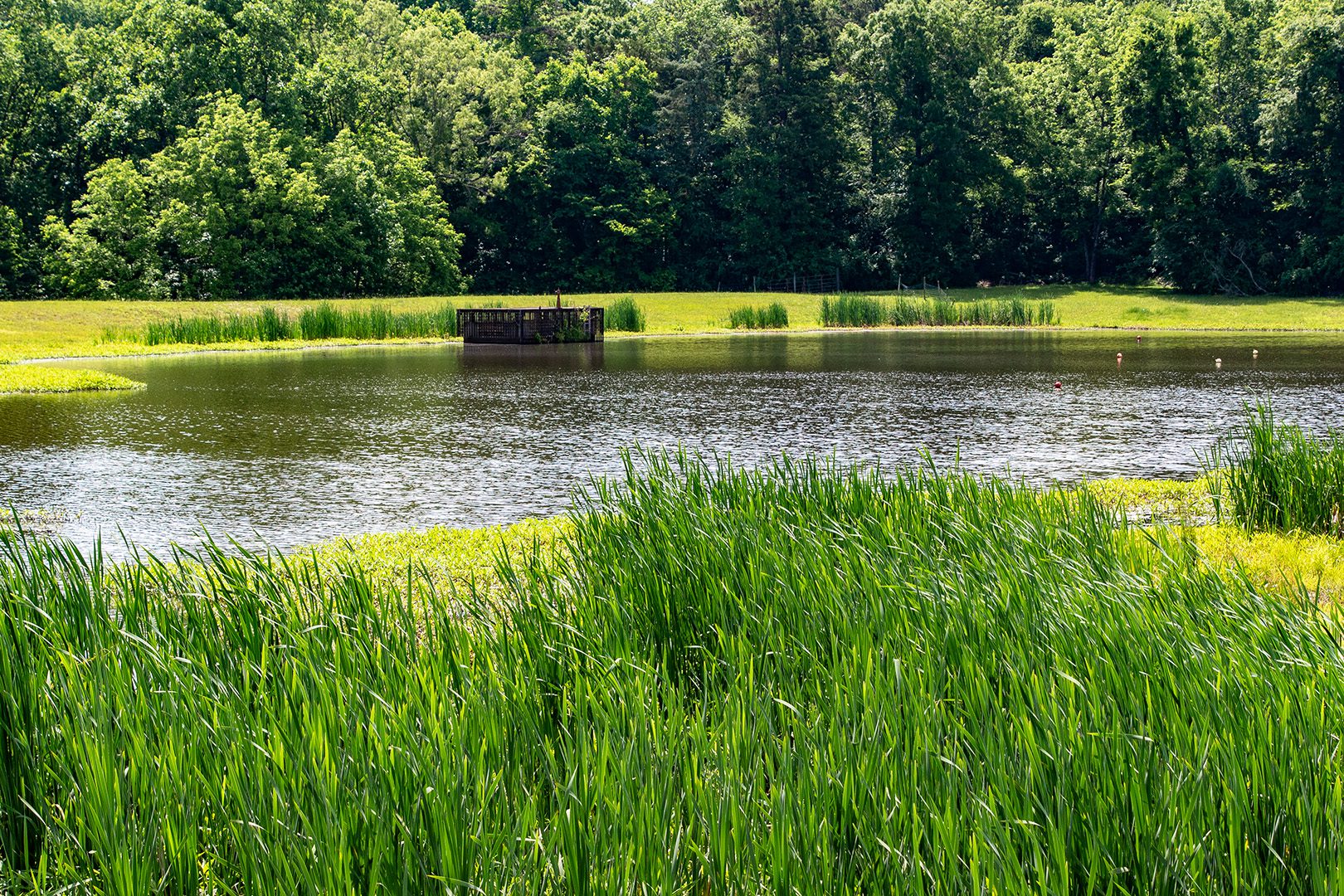
Case Study: A Success Story
A new client came to MPV Properties as mid-sized commercial association composed of a shopping center and several medical and professional office buildings. They had unknowingly neglected their stormwater system which hadn’t been inspected or properly maintained in several years. We immediately conducted a baseline inspection and found:
- Severe erosion on embankments
- Sediment buildup around outlet risers
- Non-compliant vegetation
- Inadequate dissipators at inlets
- Overdue maintenance to and an overgrown rain garden
- Leaking risers
- Damaged concrete spillways
Had this gone unchecked, the next major rain event could have resulted in downstream flooding and thousands in repairs—not to mention monetary environmental penalties.
MPV worked to coordinate all required repairs over the course of three months, and the system now passes inspections annually and requires only routine maintenance. The property owners appreciated not only the risk mitigation, but also the improved aesthetics.

A Final Word about SCM
Stormwater Control Measures are not just an environmental box to check—they’re critical infrastructure that protect your property, budget and reputation.
As a firm that specializes in commercial association management, we consider it our duty to proactively manage SCMs on behalf of our clients. We combine technical expertise, local regulatory knowledge and strategic budgeting to make sure our clients never find themselves on the wrong side of a stormwater violation.
If you own or manage commercial property with stormwater ponds or other SCMs and aren’t 100% sure they’re up to code, it’s time to act. Our team is ready to provide a full evaluation, coordinate inspections and implement a maintenance plan tailored to your property’s needs.
When it comes to stormwater management, the best time to act was yesterday—and the next best time to act is today.

Ian Bruce, Director of Association Management and certified stormwater inspector
